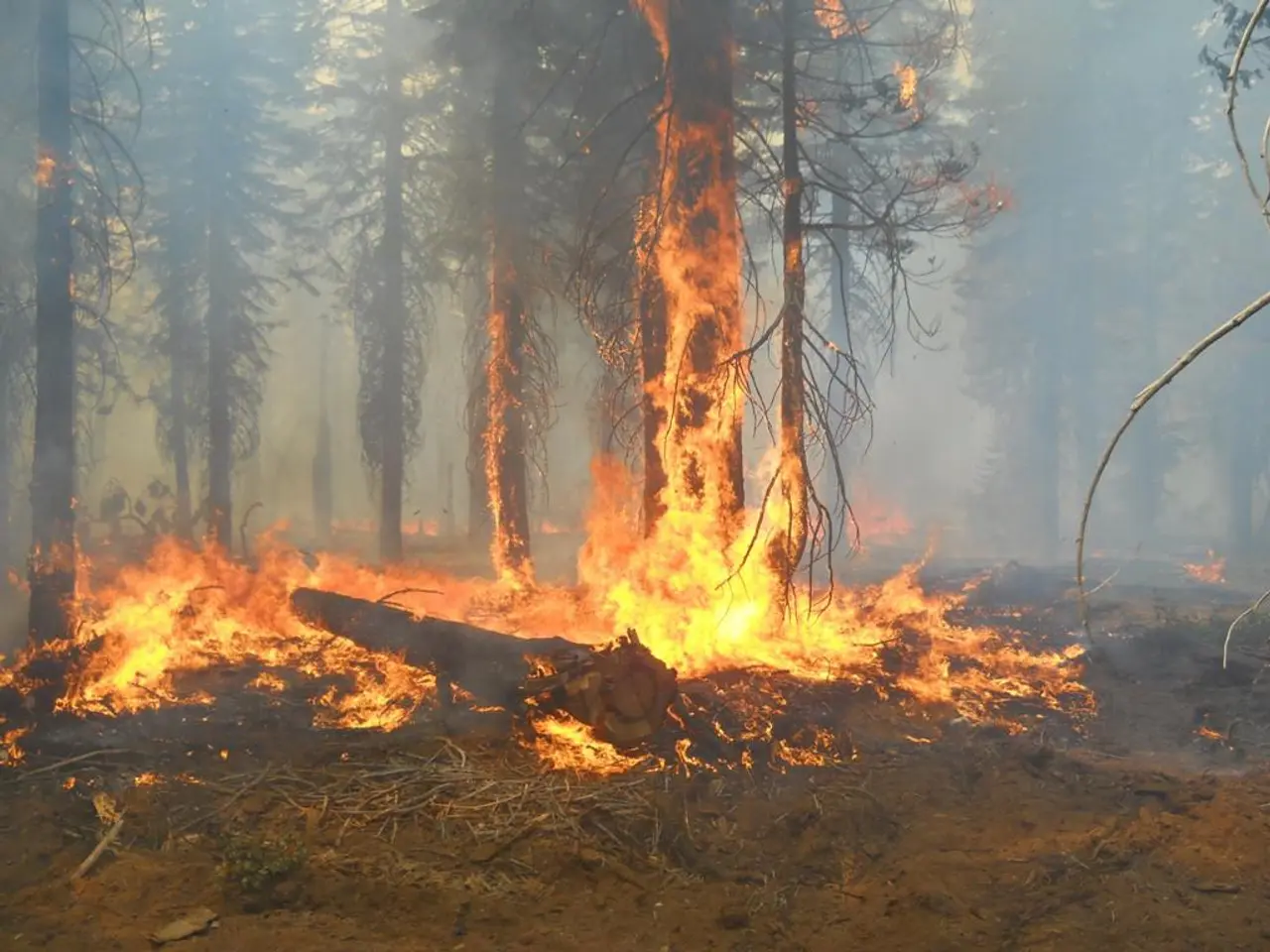Climate change exacerbating wildfire outbreaks in Spain and Portugal
In recent months, Europe has been grappling with a series of devastating wildfires, particularly in Spain and Portugal. The focus is now shifting from fire-fighting to prevention measures, as experts emphasise the importance of sustainable land management and improving the resilience of forests.
The steep terrain in northern Portugal and Spain's northwestern Galicia region has made fighting these fires particularly challenging. The fires have exhibited chaotic and unpredictable behaviour, with flames spreading in ways never seen before by firefighters.
These wildfires have had a significant impact on global health, with wildfire smoke linked to 1.53 million deaths per year around the world. Particles from the smoke can enter the lungs and bloodstream, posing serious health risks.
The wildfires this year have broken records, surpassing 1 million hectares - an area bigger than the island of Cyprus. This is a concerning trend, as many areas in Europe receive significant amounts of rain during October to March, enabling vegetation growth that can turn into fuel during dry and hot summers.
Climate change has been identified as a key factor in fuelling these wildfires. A new report published on Thursday states that heatwaves of a similar intensity would be expected less than every 2,500 years in a world without climate change, whereas today they are likely to occur every 13 years.
The Spanish and Portuguese fires this summer burned through a combined area of over 640,000 hectares. The movement of populations away from the countryside to urban areas has left many forests and farms without proper management, resulting in an abundance of dry vegetation.
The report analysing the link between climate change and the intense wildfires in Spain and Portugal in summer 2025 involved an international collaboration called World Weather Attribution. This group includes multiple research institutes such as Imperial College London and the Royal Netherlands Meteorological Institute (Koninklijk Nederlands Meteorologisch Instituut).
Without a faster shift away from fossil fuels, temperatures could hit 3 degrees Celsius this century, leading to catastrophic wildfires. The wildfires this year have already released 38 million tons of carbon dioxide, putting the continent on track to break CO2 emission records in 2025.
The wildfires have had tragic consequences, resulting in at least eight deaths and forcing tens of thousands to evacuate. Spain made its first ever request for international support to help tackle forest fires this summer.
In an effort to prevent future wildfires, methods such as thinning and spacing trees properly, reducing floor vegetation through prescribed burning, introducing grazing animals like cattle and goats, and shifting away from monocultures are being proposed. Shifting away from fire breaks or fuel buffer zones could also help in preventing wildfires.
As the world continues to grapple with the effects of climate change, the wildfires in Europe serve as a stark reminder of the urgent need to address the issue and shift away from burning fossil fuels. According to Friederike Otto, one of the report's authors, 1.3 degrees Celsius of warming today is already incredibly dangerous.
Read also:
- Nightly sweat episodes linked to GERD: Crucial insights explained
- Antitussives: List of Examples, Functions, Adverse Reactions, and Additional Details
- Asthma Diagnosis: Exploring FeNO Tests and Related Treatments
- Unfortunate Financial Disarray for a Family from California After an Expensive Emergency Room Visit with Their Burned Infant








